Gas dryer vs electric — which is better?
Here we cover the pros and cons when it comes to gas dryer vs electric
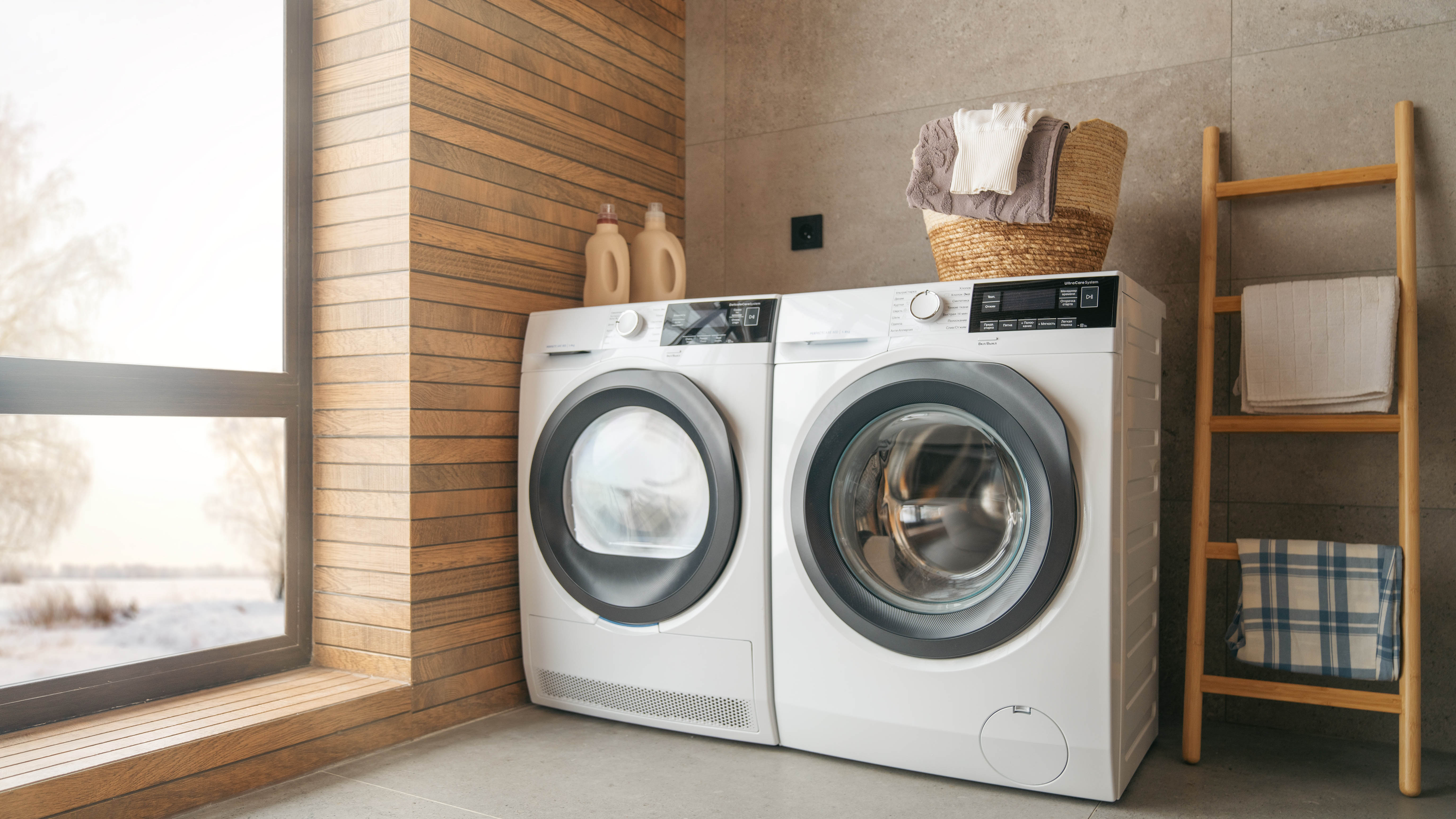
When it comes to deciding between gas dryer vs electric, it’s never an easy choice. There's pros and cons behind each design which will impact the performance and your experience. Plus, depending on your home, you may be restricted in your choice without knowing it — even one of the best clothes dryers may be unsuitable for your laundry room.
So before you can consider these 9 things to look for when buying a clothes dryer, you first need to decide which type of clothes dryer to buy — gas or electric? To help you make an informed decision, we’ve rounded up the benefits and drawbacks of each. Here, we consider the costs, both upfront and in terms of running, as well as the general performance you can expect from each, not to mention ventless options.
Gas dryer pros
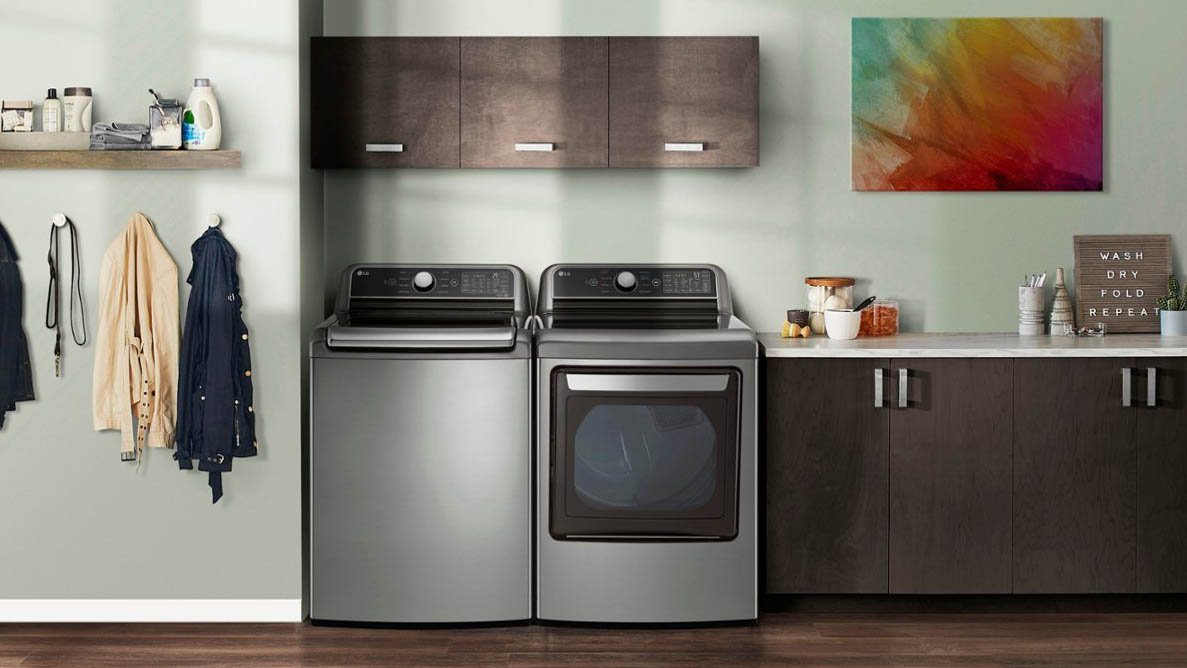
1. Quick to heat — Gas dryers are quick to heat up versus electric. This is because they generate instant heat via the burners. Consequently, gas dryers will take less time to dry off the bat because they have a more immediate effect.
2. Quick to dry — Gas dryers are also quicker to dry because they run at a hotter temperature throughout the cycle. A gas dryer can dry the same load of laundry in half the time for some models.
3. Cheaper to run — Because gas clothes dryers dry clothes more quickly, and because gas is generally a cheaper fuel versus electricity, they’re the more efficient option of the two. So, gas dryers are cheaper to run versus traditional electric vented options.
4. Less static — Gas dryers will produce less static electricity. This is because static electricity is generated as the clothes make contact in the drum, and a shorter run time means less contact.
5. Less wrinkles — You will be dealing with less wrinkles from a gas dryer too. The heat dissipates more promptly at the end of the cycle, so wrinkles can't set so quickly.
Get instant access to breaking news, the hottest reviews, great deals and helpful tips.
Gas dryer cons
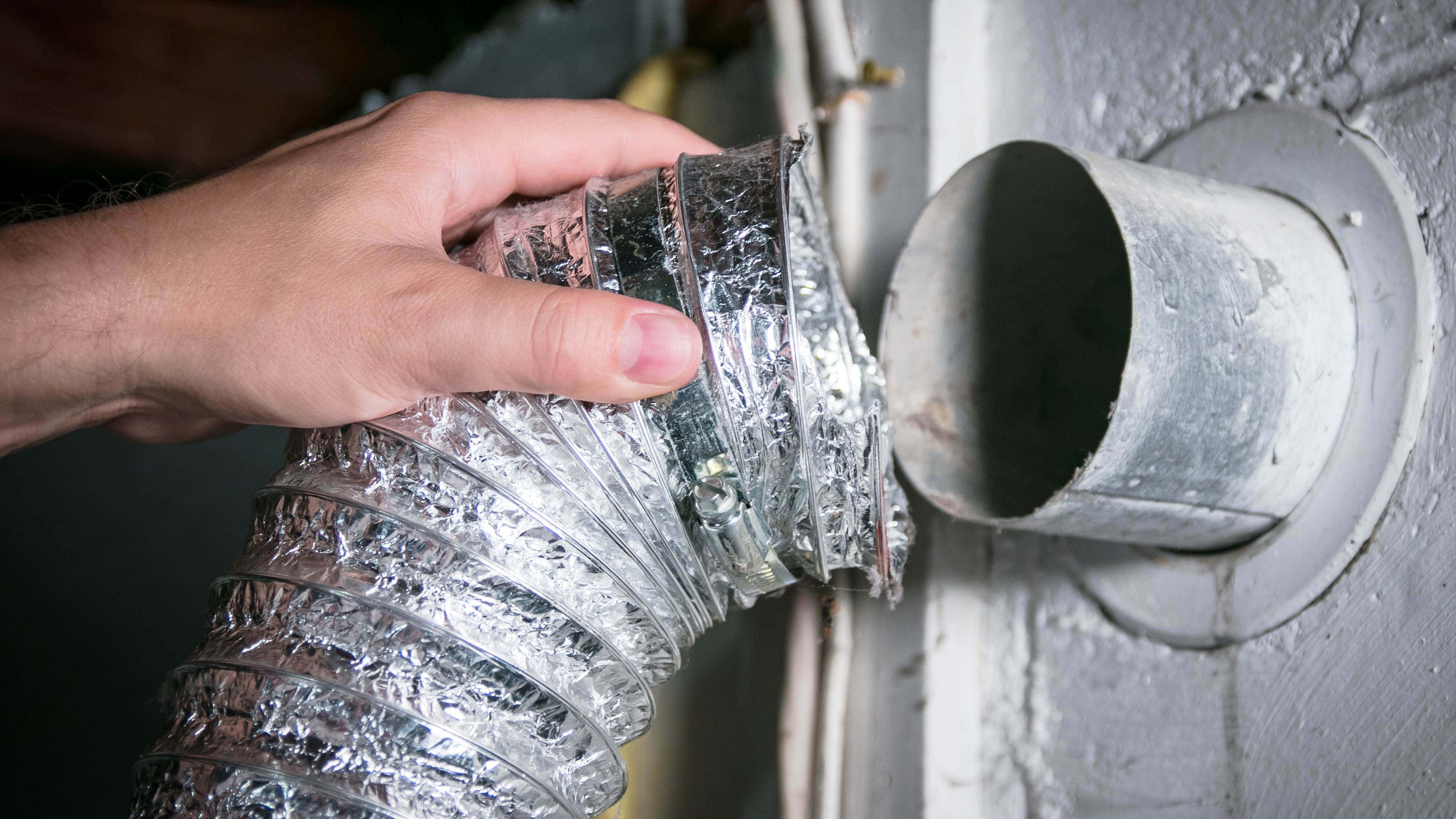
1. Limited placement — You will have limited options when it comes to placing a gas dryer. This is because they must have access to a gas hookup as well as to a vent to the outside. If these aren’t readily available in your home, installation can get expensive.
2. Maintenance — If you opt for a gas dryer, you will need to maintain and clean the vent regularly. This chore is essential, otherwise it could create a potential fire hazard. For more information on this, see how to clean a dryer vent.
3. Awkward to install — As mentioned earlier, gas dryers require access to a gas line as well as a vent to function. Installation is difficult and should not be attempted by regular consumers. You’ll need a qualified technician or licensed plumber to install the appliance and then test it — this is necessary to check there’s no gas leaks. Such services will add to the costs.
4. Expensive up front — When comparing the costs directly, gas dryers tend to cost more up front versus electric. So while it could save you money over time, you need to be prepared to make a higher initial investment. Gas dryers start from around $500 and go as high as $2,000 or more. While electric dryers start from $300, and also go as high as $2,000.
5. Limited options — If you’ve started shopping already, you might have noticed that there’s less options available for gas dryers vs electric. This means choosing a design to suit your laundry room can prove difficult.
Electric dryer pros
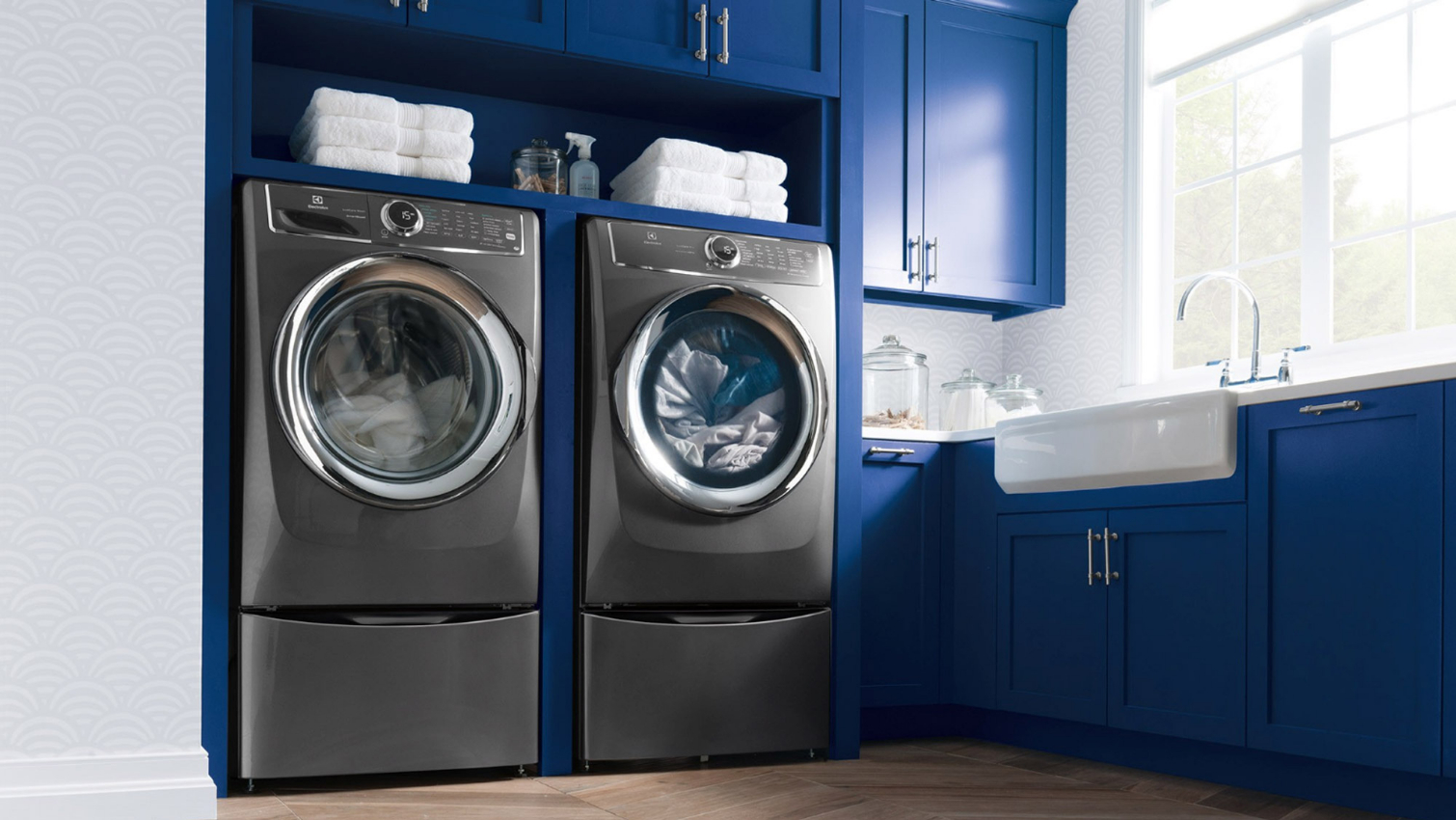
1. Ventless options available — When it comes to electric dryers, you’ve got the option to go ventless with either a condenser or heat pump design. That gives you much more freedom in terms of where to place it around the home. It’s brilliant if you’re tight on space or simply don’t have the layout to support a vent.
2. Easy to install — Compared to gas dryers, electric dryers are easier to install. This is because you just need to hook it up to an appropriate electricity supply rather than a full-fledged gas line. In fact, some homeowners will even install electric dryers themselves, saving money on hiring a handyman. Should you opt for a ventless design, you won’t need to attach the vent either, although you might need access to a drain if it doesn’t feature a removable tank, so a plumber may be required.
3. Cheaper upfront — Vented electric dryers are cheaper upfront compared to gas. As mentioned earlier, these start from as little as $300, compared to $500 for gas.
4. Wide range available — There’s a much wider selection to peruse when it comes to electric dryers. This means you’re more likely to find one to suit your exact needs.
5. Heat pump options are more energy efficient — If you’re interested in saving energy above everything, a heat pump dryer will be of interest. Because this recycles the hot air it uses, it can offer significant savings. In fact, according to Energy Star, you can save at least 28% in terms of energy use compared to regular dryers.
Electric dryer cons
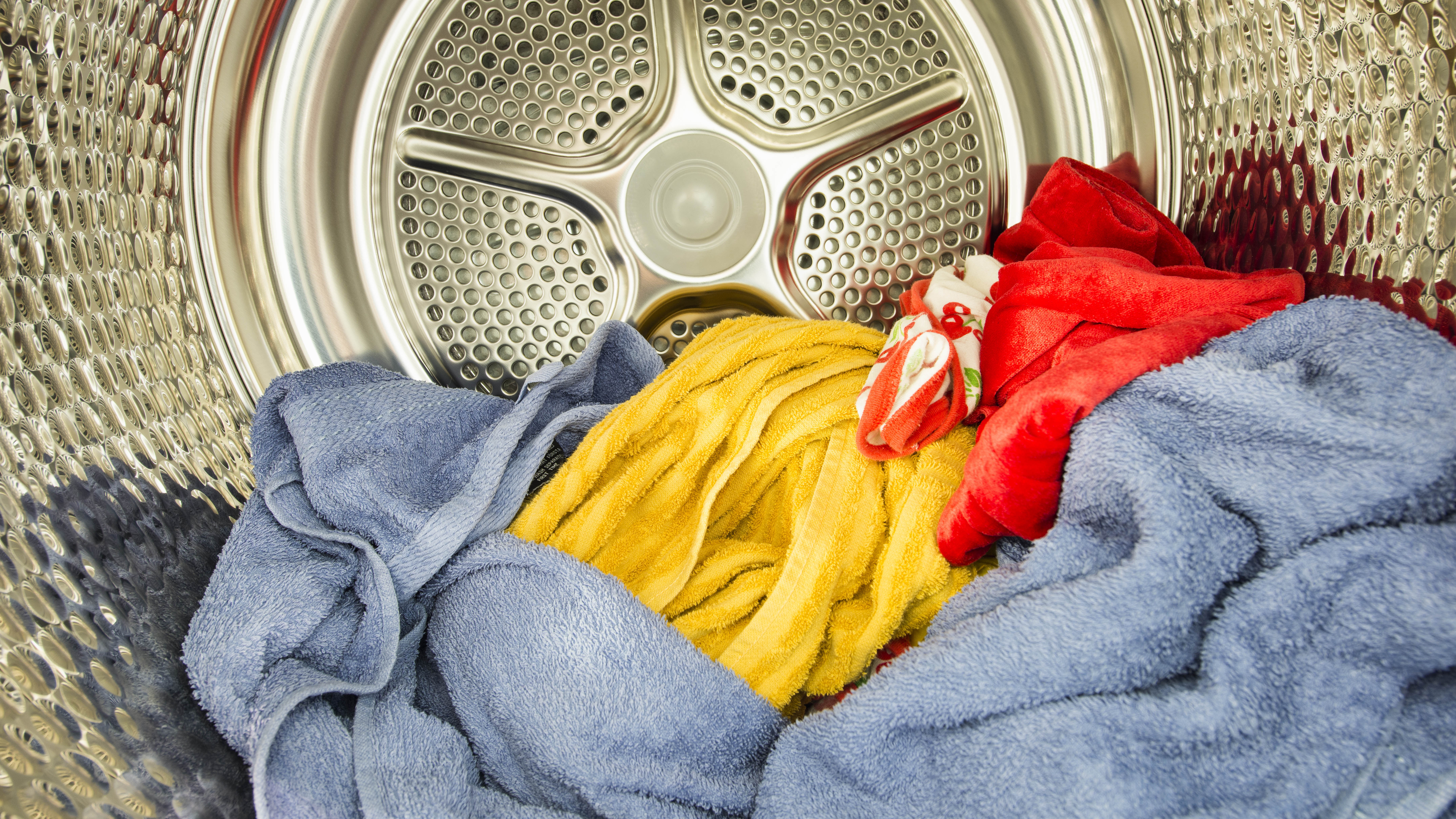
1. Slower to work — Unfortunately, electric dryers will take longer to dry your laundry versus gas. This is because it takes longer to heat initially and can’t reach as high a temperature throughout the cycle as gas. So, you need to be prepared to wait for up to twice as long for the same result.
2. More expensive to run — Unless you opt for a heat pump dryer, electric dryers are more expensive to run versus gas alternatives. This is a consequence of their needing longer to work as well as the increased cost of electricity compared to natural gas or propane.
3. Ventless options are expensive — Should you prefer a ventless design, you will have to pay for it. These start from around $1,000. If you stick to vented, remember you will still need to clean and maintain the vent as well.
4. More static electricity — Because electric dryers take longer, they’re creating more static electricity in the process too. This is the result of clothes making contact for a prolonged period. Although, you can add up to 1/2 cup of distilled white vinegar to the rinse cycle of your washer to reduce static in your dryer.This is one of the 7 ways to prevent your clothes from tangling in the clothes dryer.
5. More wrinkles — Electric clothes dryers take longer to cool once finished, so your clothes will be exposed to the residual heat for a period of time while stationary. This will set any wrinkles which have formed, unless your dryer has an extended tumble option to keep things moving.
Which is better?
Ultimately, whether you opt for a gas clothes dryer or electric, each comes with its own benefits and drawbacks. Gas dryers are generally faster and cheaper to run, but electric models are easier to install in the home, and with ventless options available, you’ve got much more freedom in terms of placement.
Depending on the layout of your home and your initial budget, you may be limited to one option in any case, so check this before you start browsing models. Be sure to also check what type of dryer you’ve used previously — sticking to the same type will likely be a more seamless transition. But, if you think the benefits of a different type of dryer are worth a change, and you don’t mind the expense to make your home suitable, the option’s always there. The better type of dryer will always come down to your needs and preferences.
More from Tom's Guide

Katie Mortram used to be a Homes Editor for Tom's Guide, where she oversaw everything from kitchen appliances to gardening tools, as well as smart home tech. Specializing in providing expert advice for cleaning and home manintenance, she now works as Household Advice Editor for Good Housekeeping.
 Club Benefits
Club Benefits





